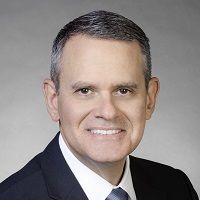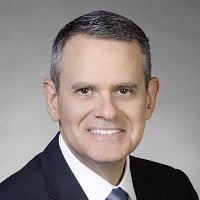The Earlier You Take Advantage of Your 401(k), the Better
The power of compound interest can turn modest contributions into big savings for retirement.


Profit and prosper with the best of Kiplinger's advice on investing, taxes, retirement, personal finance and much more. Delivered daily. Enter your email in the box and click Sign Me Up.
You are now subscribed
Your newsletter sign-up was successful
Want to add more newsletters?

Delivered daily
Kiplinger Today
Profit and prosper with the best of Kiplinger's advice on investing, taxes, retirement, personal finance and much more delivered daily. Smart money moves start here.

Sent five days a week
Kiplinger A Step Ahead
Get practical help to make better financial decisions in your everyday life, from spending to savings on top deals.

Delivered daily
Kiplinger Closing Bell
Get today's biggest financial and investing headlines delivered to your inbox every day the U.S. stock market is open.

Sent twice a week
Kiplinger Adviser Intel
Financial pros across the country share best practices and fresh tactics to preserve and grow your wealth.

Delivered weekly
Kiplinger Tax Tips
Trim your federal and state tax bills with practical tax-planning and tax-cutting strategies.

Sent twice a week
Kiplinger Retirement Tips
Your twice-a-week guide to planning and enjoying a financially secure and richly rewarding retirement

Sent bimonthly.
Kiplinger Adviser Angle
Insights for advisers, wealth managers and other financial professionals.

Sent twice a week
Kiplinger Investing Weekly
Your twice-a-week roundup of promising stocks, funds, companies and industries you should consider, ones you should avoid, and why.

Sent weekly for six weeks
Kiplinger Invest for Retirement
Your step-by-step six-part series on how to invest for retirement, from devising a successful strategy to exactly which investments to choose.
If you saw a $5 bill lying on the sidewalk, would you pick it up? Assuming you didn’t see or know who dropped it, I think it’s safe to say that many of us would pick up the cash and be happy for the bit of good fortune.
Yet, according to a 2023 report from the U.S. Department of Labor, despite nearly 70% of U.S. private industry workers having access to employer-provided retirement plans, just 52% choose to contribute to one. With many of those plans offering employer-matching contributions, many Americans are leaving that proverbial $5 on the ground week after week — and short-changing their retirement.
With elevated inflation and uncertainty around the national economy, saving for retirement may seem like a luxury or a long-term goal. But whether you’re 22, 52 or even 62, there’s no time like the present to get started, and you can’t afford to miss out. For those who have access to it, a primary vehicle to get you to a financially stable retirement is the employer-sponsored 401(k) plan.
From just $107.88 $24.99 for Kiplinger Personal Finance
Become a smarter, better informed investor. Subscribe from just $107.88 $24.99, plus get up to 4 Special Issues

Sign up for Kiplinger’s Free Newsletters
Profit and prosper with the best of expert advice on investing, taxes, retirement, personal finance and more - straight to your e-mail.
Profit and prosper with the best of expert advice - straight to your e-mail.
Popularized in the early 1980s, 401(k)s have largely replaced defined benefit pension plans as the primary source of employer-sponsored retirement savings accounts in the United States. They’re imperfect in that they’re dependent on what you contribute, have associated fees and contribution maximums, and their value is subject to the ups and downs of the markets. But 401(k)s can encourage you to save more for retirement through a few features:
- Forced savings. Contributions to your 401(k) are deducted from your paycheck before you have access to them
- Tax-deferred. Those contributions are made pre-tax. Taxes are instead assessed on withdrawal
- Employer match. Many employers will match your contributions to a 401(k) up to a certain percentage (typically 3% to 6%)
- Compound interest. Your 401(k) will earn interest over potentially many years or decades
The power of time
The last point is the most important and what makes saving in a 401(k) such an important privilege. While it’s never too late to start contributing, you can’t ever make up for the years that you don’t participate. Even smaller contributions over time can compound to make a meaningful difference in retirement savings.
Let’s take the example of a $300 monthly contribution to a 401(k) account, a projected retirement age of 65 and a rate of return of 7% (based on historical averages). If you were to make that monthly contribution beginning at age 25, you would have more than $700,000 in your 401(k) at retirement. That number drops to just $340,000 if you start contributing at age 35 and to just more than $147,000 if you begin saving at age 45.
The IRS allows individuals to begin contributing up to $30,000 annually toward a 401(k) at age 50 to help catch up as retirement approaches. It’s a good feature to supplement an existing retirement saving plan, but it shouldn’t be counted on to fully make up for lost time. In the above scenario, if you waited until age 50 to begin saving for retirement in a 401(k), you’d need to contribute more than $2,300 per month just to accrue that same $718,000 that you would have reached by making a smaller monthly contribution starting at age 25.
Everyone’s ability to contribute to a 401(k) is different, and the above scenario does not take into account pay raises, market fluctuations or employer matches that can change your contribution levels or your account’s total value over time. But it’s an important illustration of the potential power of time in growing your savings no matter your contribution level.
What you will need
A 401(k) is a powerful tool to help you build a nest egg, but it probably shouldn’t be your only plan to provide income in retirement. Since 401(k)s are taxed at withdrawal, it’s also good to explore options such as a Roth IRA, which takes post-tax contributions but allows for tax-free growth and tax-free qualified withdrawals — and there are no required minimum distributions (RMDs).
Your lifestyle and income needs in retirement will be unique to you. Additionally, the cost of living, markets and tax policies will continue to evolve. That means there is no magic number to point to as “enough” for your retirement savings. Talking with a financial adviser can help you determine what the right level of contribution to a 401(k) is for your financial circumstances and income needs both pre- and post-retirement.
A 401(k) is a helpful path to a comfortable retirement that is available and underutilized by many during those prime earning years. There’s a $5 bill on the ground in front of you. There’s no time like the present to pick it up.
Related Content
- Traditional Retirement Accounts or Roth? How to Choose
- Three Investments That Put Your Money to Work With Less Risk
- The Problem With 401(k) Catch-Up Contributions for 2024
- How to Get More Retirement Income From Your 401(k)
- What to Do if Your Employer Stops Its 401(k) Match
Profit and prosper with the best of Kiplinger's advice on investing, taxes, retirement, personal finance and much more. Delivered daily. Enter your email in the box and click Sign Me Up.

Rich Guerrini is the President and Chief Executive Officer of PNC Investments. In his role, he is responsible for all sales, operations, risk and compliance activities for the retail investments organization. Prior to his current responsibilities, Guerrini was Executive Vice President and Managing Director of Alternative Investments for PNC Investments and was responsible for development and rollout of the PNC Investment Center and PNC’s web-based investment offering.
-
 Dow Adds 1,206 Points to Top 50,000: Stock Market Today
Dow Adds 1,206 Points to Top 50,000: Stock Market TodayThe S&P 500 and Nasdaq also had strong finishes to a volatile week, with beaten-down tech stocks outperforming.
-
 Ask the Tax Editor: Federal Income Tax Deductions
Ask the Tax Editor: Federal Income Tax DeductionsAsk the Editor In this week's Ask the Editor Q&A, Joy Taylor answers questions on federal income tax deductions
-
 States With No-Fault Car Insurance Laws (and How No-Fault Car Insurance Works)
States With No-Fault Car Insurance Laws (and How No-Fault Car Insurance Works)A breakdown of the confusing rules around no-fault car insurance in every state where it exists.
-
 For the 2% Club, the Guardrails Approach and the 4% Rule Do Not Work: Here's What Works Instead
For the 2% Club, the Guardrails Approach and the 4% Rule Do Not Work: Here's What Works InsteadFor retirees with a pension, traditional withdrawal rules could be too restrictive. You need a tailored income plan that is much more flexible and realistic.
-
 Retiring Next Year? Now Is the Time to Start Designing What Your Retirement Will Look Like
Retiring Next Year? Now Is the Time to Start Designing What Your Retirement Will Look LikeThis is when you should be shifting your focus from growing your portfolio to designing an income and tax strategy that aligns your resources with your purpose.
-
 I'm a Financial Planner: This Layered Approach for Your Retirement Money Can Help Lower Your Stress
I'm a Financial Planner: This Layered Approach for Your Retirement Money Can Help Lower Your StressTo be confident about retirement, consider building a safety net by dividing assets into distinct layers and establishing a regular review process. Here's how.
-
 The 4 Estate Planning Documents Every High-Net-Worth Family Needs (Not Just a Will)
The 4 Estate Planning Documents Every High-Net-Worth Family Needs (Not Just a Will)The key to successful estate planning for HNW families isn't just drafting these four documents, but ensuring they're current and immediately accessible.
-
 Love and Legacy: What Couples Rarely Talk About (But Should)
Love and Legacy: What Couples Rarely Talk About (But Should)Couples who talk openly about finances, including estate planning, are more likely to head into retirement joyfully. How can you get the conversation going?
-
 How to Get the Fair Value for Your Shares When You Are in the Minority Vote on a Sale of Substantially All Corporate Assets
How to Get the Fair Value for Your Shares When You Are in the Minority Vote on a Sale of Substantially All Corporate AssetsWhen a sale of substantially all corporate assets is approved by majority vote, shareholders on the losing side of the vote should understand their rights.
-
 How to Add a Pet Trust to Your Estate Plan: Don't Leave Your Best Friend to Chance
How to Add a Pet Trust to Your Estate Plan: Don't Leave Your Best Friend to ChanceAdding a pet trust to your estate plan can ensure your pets are properly looked after when you're no longer able to care for them. This is how to go about it.
-
 Want to Avoid Leaving Chaos in Your Wake? Don't Leave Behind an Outdated Estate Plan
Want to Avoid Leaving Chaos in Your Wake? Don't Leave Behind an Outdated Estate PlanAn outdated or incomplete estate plan could cause confusion for those handling your affairs at a difficult time. This guide highlights what to update and when.